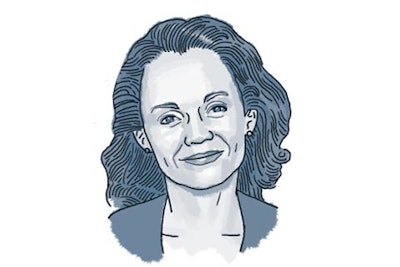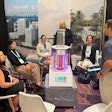
For centuries, people have been staking claims—not only to land but also to ideas.
As conference and event organizers find new ways to repurpose, share, distribute, and sell the content from their events, the issue of ownership is looming large. As a content creator myself, I’m very interested in how this will play out.
For example, I recently gave a speech at a major association conference. The original contract included language basically asking for the rights to record my presentation and rebroadcast it at will. So far, so good. I want the presentation to be seen by as many people as possible. But here’s what came next: They also wanted to be able to use the taped presentation, my slides, and my handout materials in any way they wanted—including creating “derivative” works. All the proceeds from selling these recorded or derivative works would go to them. In essence, had I signed this contract unaltered, I’d have been agreeing to let them use all the content from my session however they wanted, whenever they wanted, and keep all of the revenue.
Let me be clear: I have a great relationship with this association, and they were very open to adapting the contract language to suit our mutual interests. But this scenario raises some interesting questions.
Now that organizations are beginning to stream, record, and redistribute content in a wide variety of forms, what are the new rules? When I am asked to speak, am I being compensated for sharing my knowledge with the virtual and in-person participants at that event, or does someone else own my presentation now? Can they create their own workshop around the material?
If I organize a conference, can I record and use the content from all of the presentations any way I choose? How much should I expect to pay for full-use rights versus a one-time speech?
Let’s say I have paid a substantial fee to attend a conference. Should I be able to record all or part of a session and post it on Facebook or Twitter? And what about all the participant-generated content in crowdsourcing or unconference sessions—who owns that?
Should a corporation that sponsors Lady Gaga for an event be able to post a video of her performance on its Web site? Sell access to it? (You can bet her agent will have a pretty predictable position on this one.)
The digital age has sparked abundant opportunities for content creators and providers to share ideas in new ways with content consumers. The question is, how can we create an environment where everyone in the content-value chain benefits? It’s time to begin an industry dialogue to reveal ways of mutually benefiting from the opportunities that new ways of capturing and distributing content provide to the meeting and event industry. That conversation and collaboration could not only forestall potential conflicts, but also create far more opportunities than any of us could imagine on our own.
Mary Boone (@maryboone) is president of Boone Associates, a consultancy in Essex, Connecticut, that specializes in interactive meeting design.



















